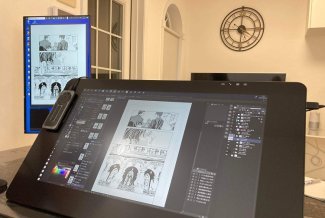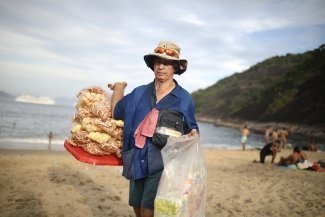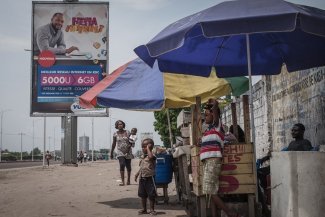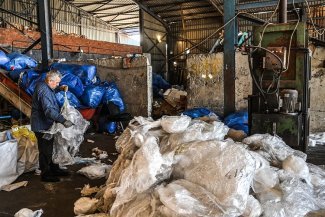In the Casamance region of southern Senegal, outside the town of Niafarang, is the Atlantic Ocean. In recent years, its sea levels have been rising. A proposed zircon mining project by the Australia-listed company Astron would not only dig up homes, experts say it would also accelerate the invasion of saltwater onto nearby lands, destroying rice fields and livelihoods.
“Such a project is going to destroy our environment,” as Abdou Sane, an environmental disaster risk reduction specialist who has worked with the United Nations. “We don’t have enough understanding about what the aim of the government is and the reason for this project.”
The mining battle in Niafarang is emblematic of cases across the developing world, where foreign companies seek to extract resources despite environmental and social concerns. And it threatens to cause further tension in a region known for separatist insurgents; this September the Movement of Democratic Forces for Casamance (MFDC) issued a warning over the mine, describing the announcement of the project as “a declaration of war”.
Since the mine was first proposed in 2004 residents of Niafarang have been able to force postponement of the project by arguing that any economic benefits of the mine are no match for the potential environmental devastation it would cause. A 2012 short documentary raised awareness of the dangers.
And yet in June of this year, a mining license was granted by the Senegalese government for the Niafarang deposit in Casamance. The dig was set to begin in the fourth quarter of 2017, according to a press release from the mining company.
Astron also noted in the news release that representatives had visited the area, met with local leaders and the company’s invited participation in a prayer ceremony signified the “local respect and acceptance of Astron in developing a small mine.” However, this is a claim that local leaders like Sane vehemently deny.
Zircon is coveted for its wide range of uses, including in foundry casting, nuclear fuel rods, catalytic fuel converters and in water and air purification systems.
But in the wake of villagers’ protests, Senegal’s Minister of Mines and Geology recently said the government would once again go the negotiating table with residents and try to find a solution. Sane says he is convinced that if the residents are able to make their voices heard, they will be able to convince the government to kill the project once and for all.

When Ousmane Sane gets excited about something, he tends to respond in rapid-fire, escalating, “Yes, yes, yes, yes, yes!” in French.
And there are few things Sane gets more worked up about these days than a proposed zircon mining site that would begin its work by digging up the dune adjacent to the local beach - a dune that he and others say protects the nearby rice fields from being flooded with sea water from already rising ocean levels.
Just a few hundred metres from Sane’s home, he walks along the ocean where black strips of zircon are visible in the sand.

Traces of zircon are evident in the sands on the beach of southern Senegal.
Atlantic Ocean sea levels have been rising here for a while, say residents in Niafarang. Abdou Sane, an environmental disaster risk reduction specialist, contends that the proposed zircon mining project, owned by Australia-listed company Astron, would accelerate the already problematic invasion of saltwater.

If you dig deeper than seven metres here, there is saltwater, says Pape Lamine Sadio, an eco-tourism expert who has lived in Niafarang for 10 years, studied topography and is against the exploration.
“The village cannot benefit in any way, even if they give us billions,” Sadio says. “We don’t live here because of money. We live here because of the nature and the land. You can’t take someone’s land in exchange for money.”
Despite the presence of multiple wells in the village, all but one of them have been contaminated by encroaching saltwater and now all the houses in the village use one well, he adds.
“The dune that Astron wants to exploit, that gives us a barrier between the salt and fresh water. If they break it, the salt water will enter into the village,” adds Sadio.

Anne Marie Diatta makes tea in her home in Niafarang. Diatta’s father is a fisherman in Niafarang, and he says he does not want the mine to come to the area.
Obviously seeking to soften the opposition, Astron signed a three-year sponsorship agreement with Casa Sport, a regional football association. Astron will contribute 30 million CFA (nearly US$54,000) annually to Casa Sport, though the company did not respond to requests for comment.
Despite this announcement, residents in Niafarang say that the mine is deeply opposed by nearly everyone in the village. A walk through the small town, which is anchored by a gigantic and majestic Kapok tree filled with squawking yellow birds, reveals near unanimous opposition.

The Diatta family works in their rice fields in Niafarang, just metres from where the purposed zircon mining project might dig up a dune...
... An action that the Diattas and others say will inundate their rice fields with nearby sea water and ruin their livelihoods.

Omar Dialla Dieh’diou is a spokesperson for the Movement of Democratic Forces for Casamance (MFDC), the independence movement in Senegal’s southern Casamance region.
Dieh’diou says the MFDC supports the community’s resistance against the project. “We are really members of this fight,” he said. “Because, we are here for the population.”

A family throws its fishing nets out on a small body of freshwater in Niafarang, where the government recently postponed the zircon mining project that environmentalists say would devastate the local ecology.
In June of this year, a mining license was granted by the state of Senegal for the Niafarang deposit in Casamance. The dig was set to begin in the fourth quarter of 2017, but Senegal’s Minister of Mines and Geology recently said the government would once again go the negotiating table with residents and try to find a solution to their concerns.

As Ousmane Sane looks out over the mangrove, he laments his lack of power.
“If the state wants to do something on my land they have the right and means to do so, but to leave here, even if they help me go somewhere else, for me that’s a prison because my land is here. It’s here that I chose to come live for myself and my children and grandchildren.”











